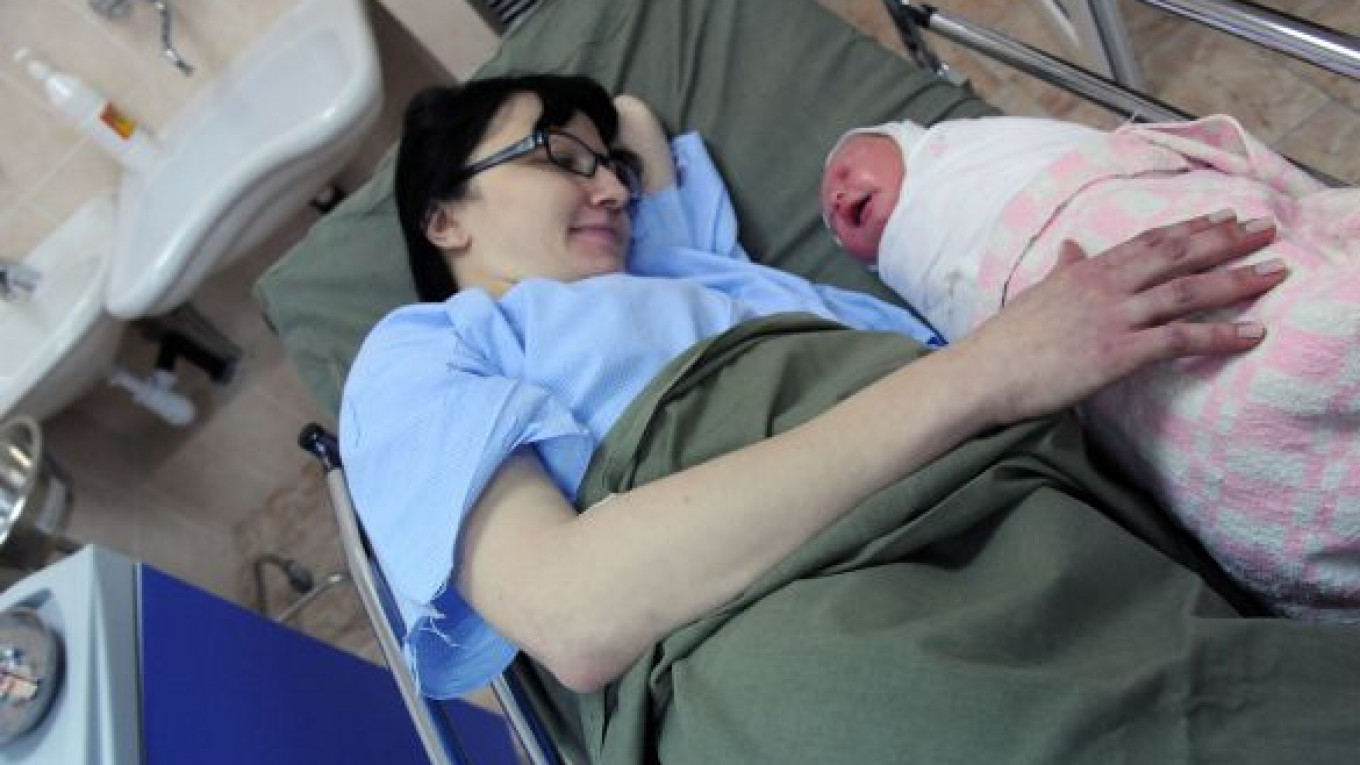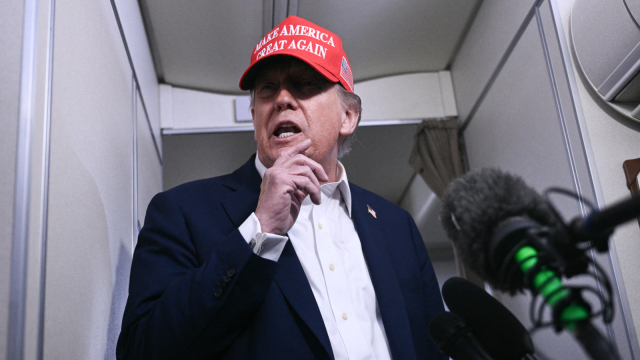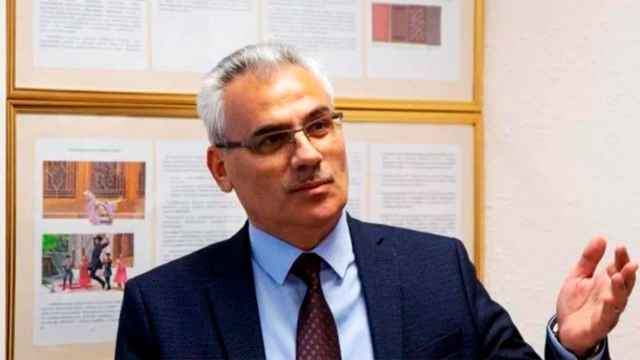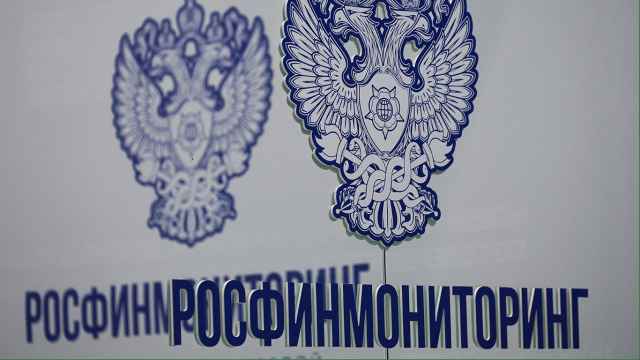The latest idea of infamous State Duma Deputy Yelena Mizulina to ban surrogate motherhood for fear that it "threatens mankind with extinction" amused and shocked observers Monday, although it appeared that legislation to enact such a ban is not planned for the near future.
Mizulina, who is best known for supporting the law that introduced fines over the summer for promoting "nontraditional" sexual relations to minors, and for her proposal to fine couples for divorce, said at an event Sunday that surrogacy was "a most frightening phenomenon that threatens not only Russia but all of mankind with extinction," RIA Novosti reported.
The remark was part of Mizulina's report at an event in Moscow titled "Restoring the Sanctity of Family and Marriage: Myth or Reality of Modern Russia?" Her report included ideas for how to help achieve President Vladimir Putin's goal to reverse Russia's population decline.
Surrogate mothers in Russia gave birth to about 1,000 children in Russia last year, Sergei Kalashnikov, head of the Duma's Public Health Committee, told Kommersant in an interview published Monday.
Kalashnikov said Mizulina's initiative was a "puzzle" to him, noting that surrogate mothers could potentially help the five million Russian women and equal number of Russian men who have been diagnosed with infertility.
"Generally speaking, it is not the first time that she shocks me with her legal initiatives," Kalashnikov said.
Mizulina, who is head of the Duma's Family, Women and Children Committee, said in a statement distributed by e-mail Monday that she is not currently writing a bill to ban surrogate motherhood, however.
Andrei Sidorchik, a columnist at the popular Argumenty i Fakty weekly, reacted to Mizulina's comment deriding surrogacy by calling her work as a Duma deputy "surrogate lawmakership."
Sidorchik pointed out in his column Monday that voters elected Mizulina to solve problems like a deficit of spots in kindergartens and a lack of high-quality health care, as well as high housing prices and the reluctance of employers to hire women who have young children.
Instead, Mizulina "takes the bread out of the mouths of variety artists," Sidorchik wrote.
In the report posted on her website, Mizulina called surrogacy "the negation of family and motherhood," arguing that children born through a surrogate mother were not "biologically connected" to their future parents. She voiced concern that surrogacy is "not used in exceptional cases but there is a risk that it can spread on a large scale," she said.
Among the dangers of surrogacy, Mizulina said in the e-mailed statement, are "the forced involvement of a woman in the process of giving birth to a child" and the failure to keep surrogacy secret from a child who was born through such a method.
Oleg Kulikov, deputy head of the Duma's Public Health Committee, said by phone that he shared Mizulina's doubts to some extent as concerned the need to keep surrogacy secret from children, and said he agreed that it was a "threat to traditional family relations."
"A woman who has not experienced the joy of motherhood impoverishes herself," Kulikov said.
"To some extent it [surrogacy] is a perversion," he added.
But the introduction of a ban would lead to "negative consequences" when "1000 families across Russia will be bereft of children," said Igor Manukhin, head of the obstetrics and gynecology department at Moscow State Medical and Dental University, by telephone Monday.
Some opponents of surrogacy say it leads to exploitation of poor women by rich people, psychological trauma in surrogate mothers who have to give away the children they bear for others, and difficulties of self-identification for surrogate children who know how they were born.
Surrogacy is illegal in countries including France, Germany, Austria, Norway and Sweden, and in certain U.S. states, while certain nations including Britain, Denmark, Canada, Israel and the Netherlands ban only commercial surrogacy.
In Russia, surrogacy is legal and allowed not only for couples but for single parents, irrespective of their gender.
Contact the author at [email protected]
A Message from The Moscow Times:
Dear readers,
We are facing unprecedented challenges. Russia's Prosecutor General's Office has designated The Moscow Times as an "undesirable" organization, criminalizing our work and putting our staff at risk of prosecution. This follows our earlier unjust labeling as a "foreign agent."
These actions are direct attempts to silence independent journalism in Russia. The authorities claim our work "discredits the decisions of the Russian leadership." We see things differently: we strive to provide accurate, unbiased reporting on Russia.
We, the journalists of The Moscow Times, refuse to be silenced. But to continue our work, we need your help.
Your support, no matter how small, makes a world of difference. If you can, please support us monthly starting from just $2. It's quick to set up, and every contribution makes a significant impact.
By supporting The Moscow Times, you're defending open, independent journalism in the face of repression. Thank you for standing with us.
Remind me later.






